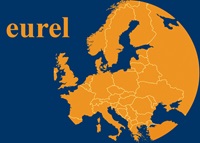In recent years, there has been a tabgible shift in Hungarian political communication, characterized by the strategic use of Christianity to advance political narratives, reinforce the legitimacy of political actors, and strengthen the institutional authority of the state.
This study aims to explore how Christianity is constructed and re-interpreted within the formal political discourse of Hungary, specifically within parliamentary speeches between the period from 1990 to 2022. The analysis will examine the use of Christianity as a legitimizing tool through the framework of van Leeuwen's four primary categories of legitimation strategies: 1) Authorization, 2) Evaluation, 3) Rationalization, and 4) Mythopoesis. The findings will highlight how shifts in the social, political, and global contexts of Hungary have influenced the framing of Christianity within these strategies. Methodologically, this research uses a mixed-method approach, integrating qualitative content analysis and discourse analysis, applied to a comprehensive 32-year database. This study contributes to the understanding of the dynamics between political communication and social context namely the role of Christianity (changing public role of Christian institutions, changing religiosity of society, etc.) in shaping the semantic and symbolic of Christianity in legitimating of political power and social structures.

 PDF version
PDF version
